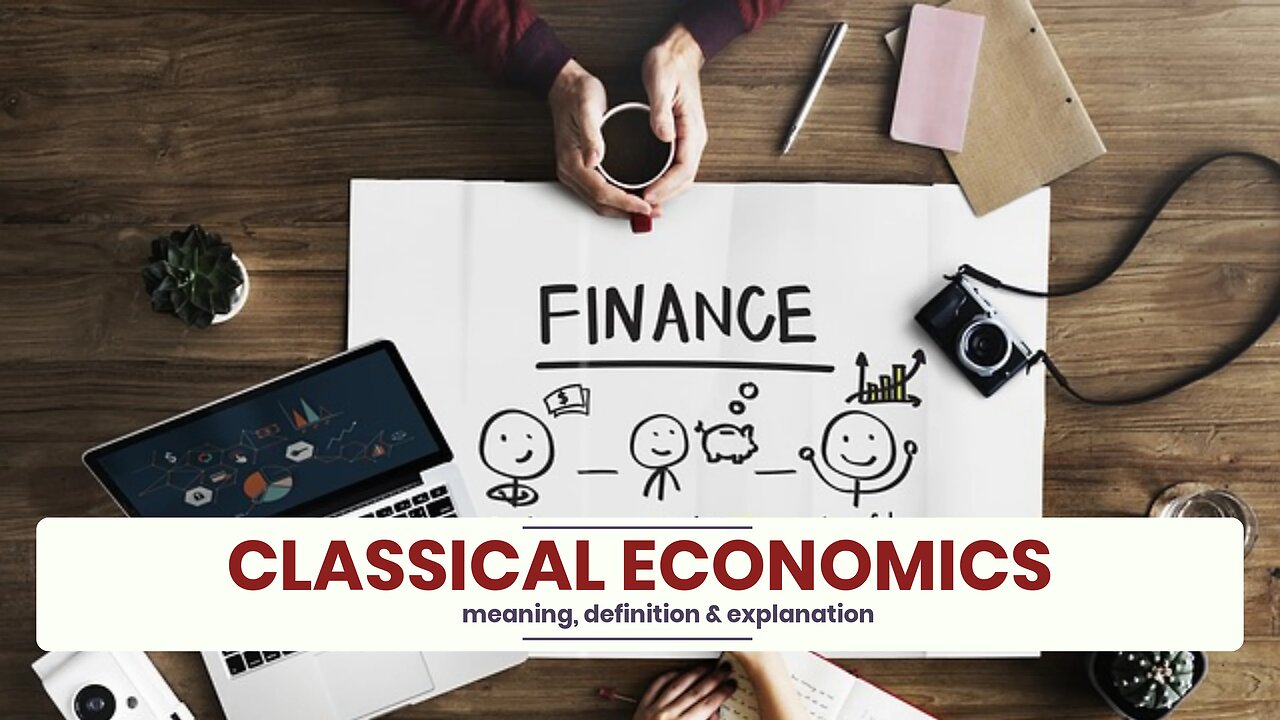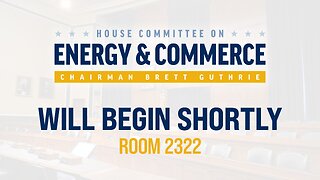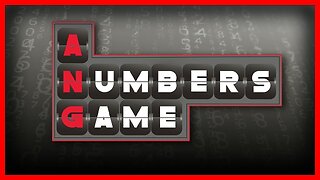Premium Only Content

What is CLASSICAL ECONOMICS?
✪✪✪✪✪
http://www.theaudiopedia.com
✪✪✪✪✪
What does CLASSICAL ECONOMICS mean? CLASSICAL ECONOMICS meaning - CLASSICAL ECONOMICS definition - CLASSICAL ECONOMICS explanation. What is the meaning of CLASSICAL ECONOMICS? What is the definition of CLASSICAL ECONOMICS? What does CLASSICAL ECONOMICS stand for? What is CLASSICAL ECONOMICS meaning? What is CLASSICAL ECONOMICS definition?
Classical economics (also known as liberal economics) asserts that markets function best with minimal government interference. It was developed in the late 18th and early 19th century by Adam Smith, Jean-Baptiste Say, David Ricardo, Thomas Malthus, and John Stuart Mill. Many writers found Adam Smith's idea of free markets more convincing than the idea, widely accepted at the time, of protectionism.
Adam Smith's The Wealth of Nations in 1776 is usually considered to mark the beginning of classical economics. The fundamental message in Smith's influential book was that the wealth of nations was based not on gold but on trade: That when two parties freely agree to exchange things of value, because both see a profit in the exchange, total wealth increases. Classical economics originally differed from modern libertarian economics in seeing a role for the state in providing for the common good. Smith acknowledged that there were areas where the market is not the best way to serve the public good, education being one example, and he took it as a given that the greater proportion of the costs of these public goods should be borne by those best able to afford them.
Classical economists observe that markets generally regulate themselves, when free of coercion. Adam Smith referred to this as a metaphorical "invisible hand," which moves markets toward their natural equilibrium, when buyers are able to choose between various suppliers, and companies which do not successfully compete are allowed to fail. Smith warned repeatedly of the dangers of monopoly, and stressed the importance of competition.
There is some debate about what is covered by the term "classical economics", particularly when dealing with the period from 1830–75, and how classical economics relates to Neoclassical economics. In more recent times, those economists who see major flaws with the heavy theoretical basis of mainstream economics have looked to classical economics for what they consider a more realistic perspective. They praise classical economics as being more understandable to the average citizen than theoretical economics (citation needed).
In contrast to classical economics, Keynesian economics supports policies such as deficit spending, control of the money supply, and a graduated income tax to counter recession and income inequality. Most classical economists reject these ideas. They assert that state intervention makes recessions worse. Unlike mainstream economics, they blame the Great Recession on government interference in the economy.
Classical economics assumes flexible prices both for goods and wages and predicts that supply can create its own demand – in other words, that production will generate enough income to allow its own products to be purchased. The Model T Ford serves as real world example of this idea, which can be generalized when the goods being produced are affordable and have a clear benefit to the buyer.
Many classical economists also believe in a gold standard. and believe that the pervasive use of fiat money explains why classical economics has not worked in the short term.
Classical economists blame the government for the Great Recession. They point to plans such as debt cancellation and taxing consumption instead of production as solutions to our economic problems.
-
 1:26
1:26
The Audiopedia
8 months agoWhat is MOTTO?
47 -
 LIVE
LIVE
Steven Crowder
3 hours ago🔴 Trump Keeps Delivering | This Week’s 3 Big Wins Explained
30,691 watching -
 1:07:54
1:07:54
Timcast
2 hours agoTulsi FIRED 100+ Deep State PERVS After Fed Kink Chat EXPOSED, Trump CLEANS HOUSE | Timcast LIVE
100K23 -
 LIVE
LIVE
Bannons War Room
8 days agoWarRoom Live
19,871 watching -
 LIVE
LIVE
House Committee on Energy and Commerce
4 days agoO&I Hearing: Examining the Biden Administration’s Energy and Environment Spending Push
239 watching -
 LIVE
LIVE
LFA TV
15 hours agoFLUSHING THE TURDS! | LIVE FROM AMERICA 2.26.25 11AM
4,119 watching -
 2:10:18
2:10:18
Matt Kohrs
13 hours agoThe Crypto Crash, Stock Bounce & Breaking News || The MK Show
44.3K3 -
 LIVE
LIVE
Caleb Hammer
1 hour agoFinancial Audit’s Dumbest Couple Ever
244 watching -
 LIVE
LIVE
MYLUNCHBREAK CHANNEL PAGE
1 day agoA Little Season in the East?
492 watching -
 56:48
56:48
VSiNLive
1 hour ago $1.30 earnedA Numbers Game with Gill Alexander | Hour 1
15.7K